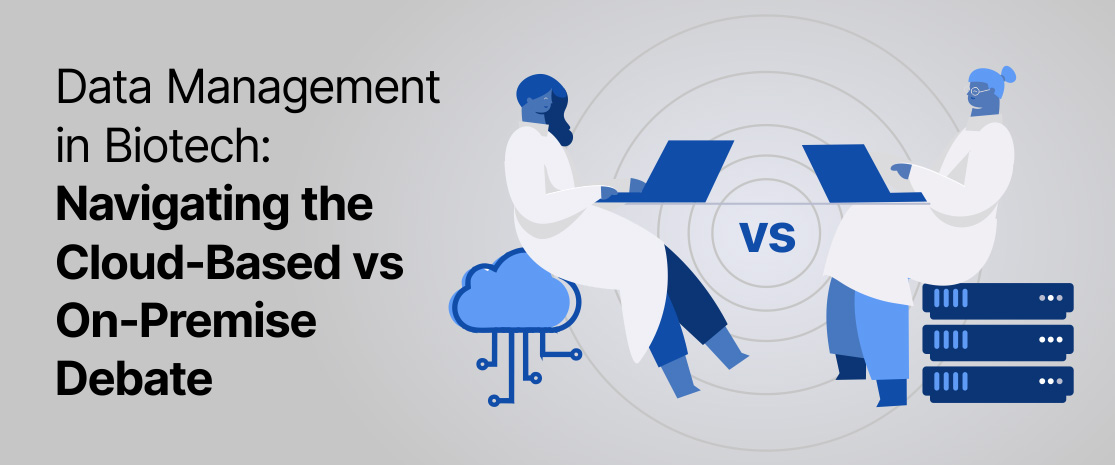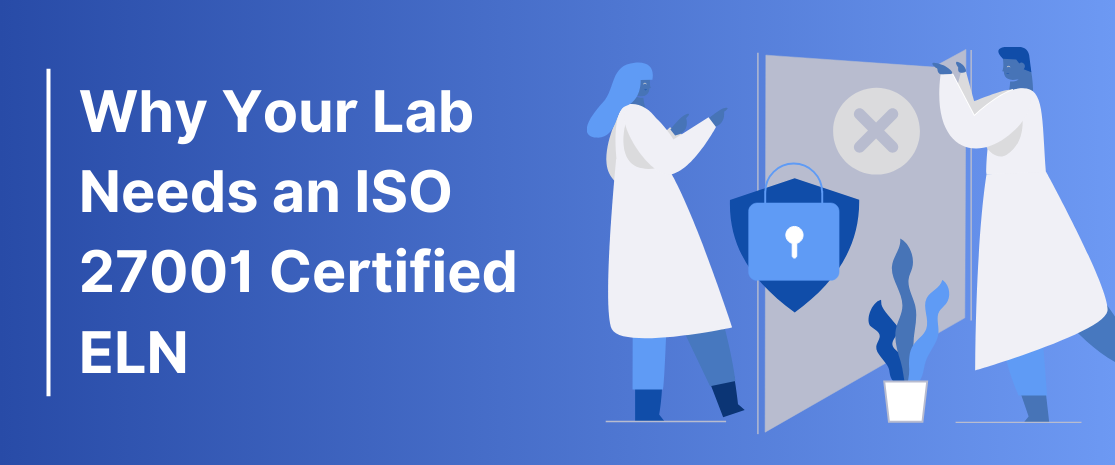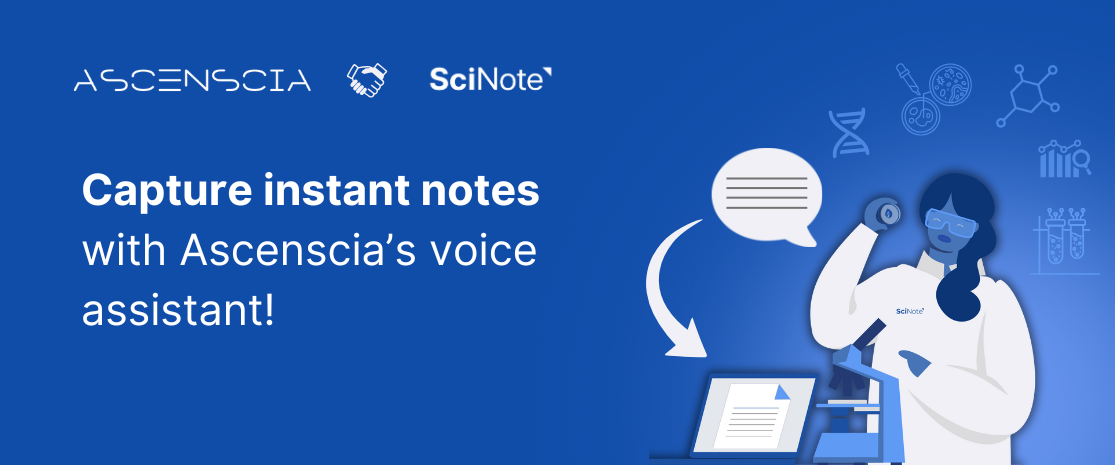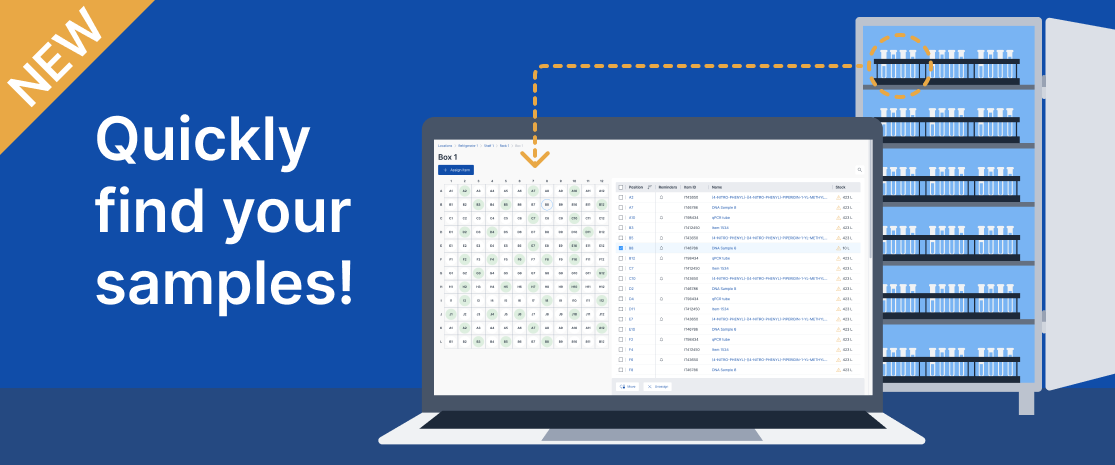Data Security in Biotech: Navigating the Cloud-Based vs On-Premise Debate
The management of research data is a crucial but often overlooked aspect of research. The exponential growth in data generation has catalyzed the need for effective data management solutions.
With the advent of advanced software technologies, biotech firms stand at a crossroads: opting for cloud-based platforms or on-premise systems for hosting their data.
This article offers an educational lens on the security aspects of both approaches, steering the biotech industry toward informed decision-making.
Summary Points
- Cloud providers offer robust security measures through cost-effective scaling, advanced encryption, continuous updates, and dedicated security teams, ensuring top-tier protection for sensitive biotech data. Yet, they pose concerns like connectivity reliance and long-term costs. Prioritizing reliable infrastructure, single-tenant setups, and clear exit plans helps mitigate risks during the shift.
- On-premise solutions provide direct control and customization for biotech firms but demand high upfront costs, maintenance, limited scalability, and remote accessibility, impacting long-term efficiency and accessibility. These drawbacks, including substantial investments and complex backup needs, pose challenges for seamless operations and scalability.
- When deciding between cloud-based and on-premise data management, companies should weigh risk tolerance, IT resources, costs, scalability, and backup strategies. On-premise solutions offer direct control but demand significant investments and robust backups, while cloud platforms provide security, scalability, predictable costs, and automated backups.
Cloud-Based Platforms: A Sky of Opportunities
The evolution of the biotech industry is inextricably linked to its ability to manage and protect vast amounts of sensitive data.
Cloud-based software as a service (SaaS) platforms have surged in popularity within this space, offering an innovative approach to the complex challenge of data management. These platforms are not just technological solutions; they are gateways to new research opportunities, collaborations, and insights that were previously unattainable due to the limitations of traditional data management systems.
They offer robust and adaptive security benefits that are crucial for the dynamic environment of biotech research, where the stakes are as high as the potential for groundbreaking discoveries.
As biotech companies are pushed to the forefront of innovation, the need for agile, scalable, and secure data management solutions becomes critical.
The nature of biotech data—with its complexity, volume, and sensitivity—demands an approach that not only safeguards information but also enhances accessibility and facilitates efficient data handling.
This is where cloud-based SaaS platforms shine.
Benefits of Cloud-Based Systems
1. Enhanced Security Measures
Cloud providers invest heavily in security, far outpacing what individual organizations could afford for their on-premise solutions.
This substantial investment in security allows cloud providers to implement a series of advanced protective measures that most individual organizations could not afford for on-premise solutions. These investments ensure that data integrity and confidentiality are maintained.
These measures include:
- Leveraging Economies of Scale: By pooling resources, cloud providers can invest in security at a scale that brings down the cost per user, delivering state-of-the-art and robust protection at a more reasonable price than would be possible for individual entities.
- Implementing State-of-the-Art Encryption: Cloud services utilize cutting-edge encryption technologies to protect data both while it’s being transmitted and when it’s stored, ensuring that unauthorized parties cannot access sensitive information.
- Providing Continuous Security Updates: To guard against emerging threats, cloud providers regularly update their security measures and infrastructure, maintaining a strong defense against potential cyber-attacks.
- Employing Advanced Threat Detection: Sophisticated systems are in place to continuously monitor for suspicious activity, allowing for the early detection of and response to security threats.
- Maintaining Dedicated Security Teams: Cloud providers have specialized security teams whose sole focus is the protection of the infrastructure, which provides an expertise that many biotech companies, especially smaller ones, may not have in-house.
Together, these strategies create a multi-layered security environment that supports the utmost in data integrity and confidentiality, offering peace of mind for biotech firms that their research data is well-protected in the cloud.
2. Access Controls
SaaS platforms offer sophisticated access control systems that enable fine-grained management of user permissions.
This granularity is especially crucial for biotech firms, where data sensitivity can vary widely, from early-stage research findings to patient-specific information. By leveraging these systems, biotech firms can tailor who has access to what data, down to specific files or sections of a dataset.
These platforms also provide audit trails, recording when data is accessed, by whom, and what actions were taken, offering an additional layer of accountability.
With such precision in access controls, not only is the risk of unauthorized access or data breaches significantly reduced, but organizations also gain more flexibility and confidence in collaborative research efforts, knowing that their data remains compartmentalized and protected.
3. Compliance and Certifications
As these platforms cater to a global market, they often comply with stringent security standards and certifications.
For instance, SciNote is in the process of entering the Federal Risk and Authorization Management Program (FedRAMP) approval, reflecting a commitment to adhering to rigorous security protocols that many biotech firms require.
4. Clear Data Ownership
One of the paramount concerns when it comes to choosing a data management platform is the assurance of data ownership.
Cloud services like SciNote address this concern by ensuring that companies retain full ownership of their data. This is critical, as ownership dictates not only control over the current use of the data but also secures the freedom to decide how data will be utilized or shared in the future.
In the biotech industry, data is not just an asset but the lifeblood of innovation and discovery. Maintaining ownership means safeguarding the intellectual property that can give a company its competitive edge.
It ensures that firms have the autonomy to move, manipulate, analyze, and draw insights from their data without restriction.
Data ownership also protects companies in case of service changes or when switching between platforms, as having clear ownership allows for smoother transitions without the risk of data loss or disputes.
5. Regular Backup and Data Redundancy
The importance of regular backups cannot be overstated, particularly in fields like biotech where data is not only valuable but often irreplaceable.
Cloud-based systems inherently provide robust backup solutions and data redundancy, minimizing the risks of data loss due to hardware failure, natural disasters, or human error.
Benefits of cloud-based solutions for this include:
- Automated Backup Processes: Cloud services typically offer automated backup processes that regularly save copies of data at set intervals, ensuring that the most current version of your data is available for recovery if needed.
- Geo-Redundancy: Many cloud providers store data redundantly in multiple physical locations. This geo-redundancy means that even in the event of a catastrophic event at one data center, a backup at another location will keep the data secure and accessible.
The Downside of Cloud-Based Systems
While cloud-based platforms offer a myriad of benefits, there are inherent risks and potential drawbacks associated with cloud-based data management systems that biotech firms need to consider.
- Dependency on Internet Connectivity: Cloud-based services are inherently dependent on reliable internet access. Any disruption in connectivity can lead to a temporary loss of access to critical data, potentially halting research activities and leading to significant productivity loss.
- Long-Term Costs: Although cloud services typically have lower upfront costs, the subscription-based model can lead to higher operational expenses over time. For some organizations, these costs may accumulate to exceed the price of an on-premise solution, especially when considering the extended lifecycle of biotech research projects.
- Data Security and Privacy Concerns: Despite heavy investments in security, the nature of cloud services means that data is stored off-premises, often in multi-tenant environments. This can raise concerns about data privacy and the potential for data leakage, especially given the sensitive nature of biotech research data.
- Performance Variability: The performance of cloud-based services can vary due to multiple factors such as server load, network latency, and bandwidth fluctuations. For data-intensive biotech applications, this can result in inconsistent application response times and delays.
Key Considerations for Choosing a Cloud-Based System
When weighing the pros and cons of using the cloud for data management solutions, biotech companies should prioritize the following characteristics to ensure they select a system that aligns with their operational and security needs:
- Infrastructure Reliability
Select platforms built on established cloud infrastructures like AWS, which offer reliable performance and substantial dependability. This choice can safeguard against performance variability and ensure consistent accessibility. - Security Assurance
Look for systems that employ a single-tenant architecture, which provides a dedicated environment for your data, enhancing security and privacy measures compared to multi-tenant solutions. - Exit Strategy
The provision of a clear exit strategy with cloud-based systems ensures that firms are not locked in and can migrate their data if needed, allaying fears of data hostage situations that can be a concern with SaaS offerings.
By emphasizing these factors in the selection process, biotech firms can navigate the potential pitfalls of cloud-based systems.
A platform like SciNote, with its strong foundation and dedication to these principles, exemplifies what to look for in a cloud-based data management system and serves as a benchmark for organizations ready to make the transition to the cloud.
On-Premise Solutions: The Grounded Alternative
On-premise systems allow biotech firms to have their data servers physically located within their own facilities, managed by their IT teams.
Having these data storage computers on the premises of the organization that owns and operates them, rather than at a remote facility gives companies full control over their data. This gives them the flexibility to set up their systems exactly as they need, without the restrictions imposed by third-party cloud platforms.
This traditional approach has its merits, which continue to make it a viable option for certain organizations.
The Benefits of On-Premise Solutions
Some of the main benefits of building in-house data storage include:
1. Direct Control
The most significant advantage of on-premise systems is the direct control over data and infrastructure.
Firms with highly sensitive intellectual property may prefer having their data within arm’s reach, managed by personnel they trust directly.
2. Customization and Integration
On-premise solutions can be extensively customized to fit the unique workflow and integration needs of biotech firms. Companies with specific requirements that cannot be met by cloud-based platforms often find solace in on-premise systems.
3. Security Responsibility
While on-premise systems allow for complete control, they also place the onus of security squarely on the company.
The biotech firm’s IT team is responsible for all aspects of data security, from network protection to the physical security of servers. For organizations with robust IT departments, this can be managed effectively.
The Drawbacks of On-Premise Solutions
While on-premise solutions offer significant benefits for biotech companies, they also come with several drawbacks that can impact their long-term viability and efficiency. Below are some of the potential disadvantages of on-premise infrastructure:
- High Initial Costs: One of the most prohibitive aspects of on-premise solutions is the high upfront investment required.Organizations must purchase all the necessary hardware, software licenses, and networking capabilities.There’s also the cost of setting up a secure and appropriate physical environment for the servers, which includes climate control and power redundancy systems.
- Scalability Challenges: As biotech firms grow and their data needs expand, on-premise infrastructures can be challenging and expensive to scale.Unlike cloud services, which allow for quick adjustments to storage and processing capabilities, scaling on-premise solutions often means significant capital expenditures and physical expansion.
- Maintenance and Upkeep: On-premise systems require constant maintenance and management by an in-house IT team. This includes applying software updates, patches, and managing hardware replacements. The ongoing time and labor associated with these tasks can be substantial.
- Limited Accessibility: Remote access to on-premise systems can be more challenging to implement securely than cloud-based solutions.As biotech research becomes increasingly collaborative, the ability for researchers to access data from any location can be a critical feature that on-premise solutions struggle to offer seamlessly.
- Obsolescence Risk: Technology evolves rapidly, and on-premise infrastructure can become obsolete more quickly than cloud-based services, which are continuously updated by the provider. Biotech firms may find themselves with outdated systems that hinder their research and development efforts.
- Backup Challenges: On-premise setups need a solid plan to keep copies of data safe — this means preparing for things like computer crashes, mistakes that delete important files, or systems getting damaged.To do this properly, a company has to set up extra backup systems in multiple locations in order to be safeguarded against disasters, which can be complicated, resource-intensive, and expensive.
Trade-Offs: Making the Right Choice
Every industry dealing with sensitive data, whether biotech, HR, finance, or communication, grapples with trade-offs when deciding how to manage their data.
Here’s what companies should consider when choosing between cloud-based and on-premise data management:
I. Assessing Risk Appetite
The decision often comes down to a company’s risk profile.
If a biotech firm handles extremely sensitive data and possesses the resources and IT infrastructure to manage and secure it effectively, on-premise might be the preferred choice.
However, for many, the advanced security measures of cloud-based platforms like SciNote, combined with their compliance adherence, provide a more reassuring option.
II. Evaluating IT Resources
The choice between cloud-based and on-premise solutions also hinges on the IT resources available.
Small to medium-sized biotech firms, or those looking to scale rapidly, may find it challenging to invest in and maintain the IT manpower required for on-premise systems.
As well, larger companies with more substantial resources may also opt for cloud solutions to conserve their IT manpower for strategic tasks rather than the day-to-day management of data infrastructure.
III. Considering the Costs
Cost is a critical factor, too.
On-premise solutions entail significant upfront investment in infrastructure and ongoing costs in maintenance and upgrades.
Cloud-based platforms, on the other hand, typically operate on a subscription model that can be more predictable and scalable according to the firm’s needs.
IV. Analyzing Flexibility and Scalability
The agility provided by cloud-based platforms cannot be overstated. As biotech firms grow, their data management needs will evolve.
Cloud services offer scalability that is hard to match with on-premise systems, which might require additional hardware purchases and downtime for upgrades.
V. Planning for Data Backups
An essential factor to consider is how data backups are managed.
On-premise solutions may offer more direct control over backups, but require a robust strategy to protect against data loss due to system failures, human errors, or catastrophic events.
Cloud-based platforms generally include regular, automated backups that are stored in multiple locations, providing an additional layer of protection and peace of mind that is especially valuable for companies without extensive IT resources.
Conclusion: Leaning Towards the Clouds
As the biotech industry continues to navigate this complex landscape, it is evident that the leaning is toward cloud-based solutions. With their ability to provide secure, scalable, and compliant data management, platforms like SciNote are poised to be the partners of choice for biotech firms aiming to innovate and grow in a data-driven era.
While SciNote does offer on-premise options, partnering with companies’ IT teams to ensure their security needs are met, its primary offering – cloud-based services – stands out as a front runner for the biotech industry.
Cloud-based solutions are becoming increasingly superior for their robust security features, compliance certifications, and cost-effectiveness.
In the end, the decision on data management strategy should align with the organization’s size, resources, and long-term vision.
With a partner like SciNote, biotech companies can embark on their research journey with confidence, knowing their data is as secure in the digital cloud as it would be under their own lock and key.






